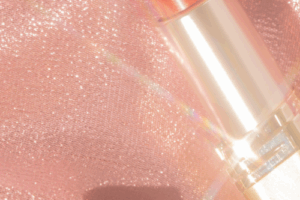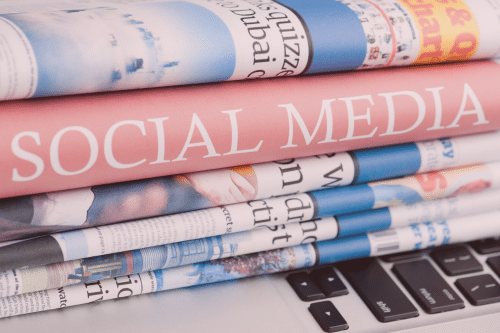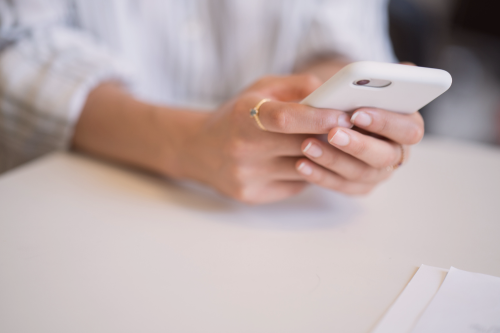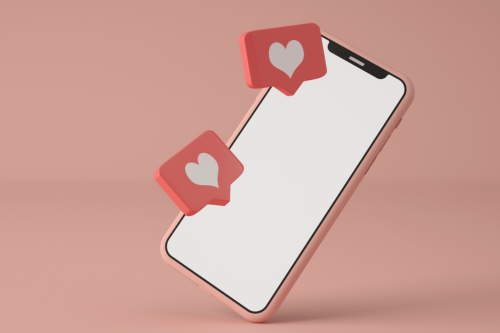


In our modern world, now more than ever we are constantly inundated with a desire to be connected at every hour of every day. You know what I’m talking about…. social media. For many of the women I work with, these platforms aren’t just apps; they’re integral threads woven into the fabric of their everyday lives. This blog post explores the ways that social media affects mental health, the good, the bad and the in between.
As a holistic therapist, I’ve witnessed many of the benefits of social media; which include connection, empowerment and self-discovery. But there is also a dark side to social media. It can lead to increased anxiety, self-doubt, other mental health issues and a persistent feeling of “not being enough”.
In this blog, I’m diving into the delicate dance we play with social media. We will explore not only the negative effects social media has on our mental and emotional health but also the positive effects of social media use. I’m not here to demonize social media, but I am here to support you in figuring out how to ditch those unhealthy social media habits, and start to create a healthier relationship with social media that maximizes on the benefits and minimizes the negatives.

Like with anything in life, nothing is entirely good or bad. If you think in this all or nothing way, check out my blog post on how to stop black and white thinking in it’s tracks. The same can be said for social media. Below I’m sharing some of the positive and negative effects of social media:
Connection and Communication: Social media bridges geographical divides, allowing users to connect, communicate, and maintain relationships worldwide.
Information and News: Platforms like Twitter and Facebook provide real-time news and updates, making it easier for users to stay informed.
Education and Awareness: Social media aids in spreading educational content and raising awareness about global issues or events.
Community Building: Individuals can find and join groups or communities that share similar interests, challenges, or beliefs.
Business Opportunities: Businesses can leverage social media for marketing, brand building, and customer service, often at a fraction of the cost of traditional advertising.
Empowerment: Social media platforms give a voice to the marginalized and have played pivotal roles in various social movements and protests.
Creativity and Self-expression: Platforms like Instagram, TikTok, and Pinterest allow users to express themselves artistically and creatively.
Networking: Professionals can connect, share, and learn from others in their industry, particularly on platforms like LinkedIn.
Mental Health Problems: Overuse can lead to anxiety, depression, loneliness, and lower self-esteem, especially among younger users. This is all especially true if you already struggle with poor mental health.
Misinformation and Fake News: The rapid spread of false information can lead to unnecessary panic, wrong beliefs, and can even influence public opinion on important matters.
Cyberbullying: The anonymity and ease of communication can facilitate harassment, bullying, and trolling. This can be especially concerning for younger populations and its impact on adolescent health.
Privacy Concerns: Personal data can be harvested and misused, leading to potential identity theft and other privacy invasions.
Addictive Nature: Constant notifications and the dopamine-driven feedback loop can make social media addictive, leading to productivity loss and strained real-life relationships.
Comparison Trap: Users may feel inadequate when comparing their lives to the often curated and embellished lives of others on platforms like Instagram.
Echo Chambers: Social algorithms often show users content aligned with their beliefs, leading to reduced exposure to diverse perspectives and reinforcing existing beliefs.
Economic Concerns: Social media can sometimes propagate unrealistic lifestyle standards, influencing users to spend beyond their means.
While social media offers numerous benefits, it’s essential to use it mindfully and consciously, aware of its potential pitfalls. As its influence continues to grow, striking a balance between leveraging its advantages and minimizing its negative effects on mental health is vital.
As a holistic therapist, I’ve often witnessed the intricate dance between our authentic selves and the personas we craft online. The digital age has presented us with tools that allow for meticulous curation of our online identities. While this can be a means of self-expression, it also harbors the potential for detrimental comparisons and perfectionism.
Many of us showcase an idyllic, edited version of our lives on social media, emphasizing celebratory occasions, achievements, and highlights. When we, as viewers, consume this curated content, we’re inadvertently comparing our unfiltered experiences to a mere fragment of someone else’s life. Over time, this can foster feelings of inadequacy and an unrealistic perception of reality.
It’s essential to remember that behind every picture-perfect post lies a gamut of emotions, challenges, and mundane moments that don’t make it to the digital forefront. As we engage online, it’s vital to approach content with a discerning mind, grounding ourselves in the understanding that true life is multi-dimensional, far beyond the confines of a screen.

Social media, in its vast, interconnected web, can be a double-edged sword. While social media can sometimes create more connection, it can also be a potent catalyst for feelings of FOMO (Fear of Missing Out). As users scroll through their feeds, they are inundated with the snapshots of events, gatherings, and experiences they aren’t a part of. Whether it’s friends at a gathering you weren’t invited to, colleagues at a networking event you missed, or even strangers traveling to exotic locations you’ve only dreamt of, each post can amplify the sense that others are leading more fulfilling lives.
Over time, this continuous exposure can foster feelings of inadequacy, loneliness, comparison and the nagging sense that you’re perpetually out of the loop. The curated nature of social media, which often emphasizes highlights over daily realities, can skew perceptions, making FOMO more intense and pervasive, affecting not just your digital experience but also your mental health as a whole.
The “validation trap” is a contemporary phenomenon rooted in the unique interplay between self-worth and online feedback. This trap emerges when we become overly reliant on external validation, particularly from digital platforms. Instead of looking inward for self-validation or deriving confidence from genuine accomplishments and personal growth, we seek confirmation through likes, comments, shares, or followers.
At a psychological level, these seemingly harmless engagements act as external validators, often influencing our sense of self-worth and how we perceive ourselves. Every like or comment can trigger a release of dopamine, a neurotransmitter associated with pleasure and reward, making the quest for online validation addictive. Over time, this can lead to an external locus of self-esteem and self-worth, where your self-esteem becomes intricately linked to the volume and nature of online feedback.
The absence of expected engagement or the presence of negative comments can evoke feelings of rejection, inadequacy, and isolation. Conversely, receiving a large number of likes or positive comments can offer a temporary boost in self-esteem but can also create an unsustainable loop where your self-worth is continually contingent on external validation. The validation trap can lead to anxiety, depression, decreased self-worth, and a distorted sense of reality, as we prioritize online affirmation over genuine, offline experiences and connections.
In today’s hyper-connected digital age, information overload and decision fatigue are NO JOKE. We find ourselves engulfed in a relentless tide of information. From breaking news and social media updates to email notifications and app alerts, our brains are bombarded almost ceaselessly. This inundation, often referred to as “information overload,” places significant strain on our cognitive capacities.
Neurologically, our brains aren’t wired to handle such a continuous influx without consequence. As we attempt to process and respond to this overwhelming amount of information, our capacity for deep thinking, reflection, and focus is compromised. Decision fatigue sets in, where the sheer volume of choices and information paralyzes our ability to make well-informed decisions.
This constant division of attention makes it challenging to distinguish between critical information and distractions, leading to a decline in our ability to prioritize effectively. Over time, the strain of incessant information can exacerbate feelings of stress, burnout, and even reduce our overall cognitive resilience.
The blue light emitted from screens disrupts the production of melatonin, our sleep-inducing hormone, effectively tricking our brains into thinking it’s still daytime. This results in delayed, often disrupted sleep patterns. Beyond just the poor sleep hygiene, these nightly social media scrolls interfere with our ability to wind down, mentally and emotionally.
The content we consume, whether it’s an engrossing article or a stressful email, can stimulate our minds, making it difficult to transition into a restful state. Sleep, an often-underrated pillar of mental health, plays a pivotal role in cognitive function, emotional regulation, and overall well-being. Chronic sleep deprivation or disruption can increase susceptibility to mood disorders, impair memory, hinder decision-making, and elevate stress levels. If you are looking to be mentally and emotionally healthy you need to be prioritizing your sleep!

If I haven’t convinced you yet, creating a healthy relationship with social media is necessary for your mental and emotional health. Below I am sharing some of my favorite strategies to help you recalibrate any unhealthy or excessive social media use.
Digital Detox Days: Consider designating a day of the week where you disconnect from all social media platforms. This short detox can offer your mind the much-needed respite and help you reconnect with the physical world around you. If you’re looking for something a little more extreme you can always consider a more drastic route and do a full digital detox.
Mindful Scrolling: Mindful scrolling means engaging with social media with intention, awareness, and presence. It’s about consuming content without mindlessly scrolling and wasting time, while also ensuring that the time you spend on these platforms doesn’t negatively affect your mental health and overall well-being.
Mindful Consumption: Being selective and intentional with the content you consume and share. Before sharing, commenting, or reacting, pause and reflect. Engage in a way that aligns with your values and intentions.
Setting Boundaries: Setting boundaries with the accounts you follow, along with designating screen-free times and zones is necessary when it comes to healthy social media use.
Set Clear Intentions: Before logging in, check in with yourself. Ask yourself why you’re doing it. Is it out of habit, boredom, or for a specific purpose? Setting clear intentions can prevent mindless scrolling.
Curate Your Feed: Unfollow accounts that don’t make you feel good or don’t align with your values. Instead, follow those that inspire, educate, and uplift you.
Turn Off Non-Essential Notifications: Reduce distractions by turning off non-essential notifications. in doing so, you can choose to engage with social media rather than being pulled into it anytime you get a notification.
Set Time Limits: Use built-in digital well-being tools on your smartphone or apps like “Freedom” or “StayFocusd” to set daily time limits for each social media platform.
Avoid “Doomscrolling”: Be conscious of the amount of negative news and content you consume. It’s essential to be informed, but overconsumption can increase anxiety and stress.
Limit Screen Time Before Bed: As previously discussed, the blue light from screens can disrupt sleep. Try to avoid screens at least an hour before bedtime to ensure better sleep quality.
Physical Boundaries: Designate areas in your home, like your bedroom, as no-phone zones. This can create spaces of relaxation and genuine connection with others.
Educate Yourself: Understand the design tactics used by various social media sites and platforms to keep users engaged. Being informed can make you more resilient to these tactics.
Connect Offline: Prioritize face-to-face interactions and engage in activities that don’t involve screens. This can help balance your online and offline worlds.
Self-Reflect Regularly: Periodically evaluate the impact of social media on your life satisfaction and your mental health. Recognize signs of burnout, envy, or negativity and adjust your habits accordingly.
Seek Support: If you feel overwhelmed, consider seeking support. This could be in the form of therapy, joining a support group, or simply discussing your feelings with family members and loved ones.
A healthy relationship with social media is all about balance. It’s crucial to remember that these platforms are tools. Like any tool, they can be used constructively or destructively. Being mindful of your habits and intentionally setting boundaries will ensure that healthy social media use enriches your life rather than detracts from it.
While this article is meant to support you in creating a healthier relationship with social media. It can feel overwhelming to implement a bunch of changes over time. When we do this, it isn’t sustainable. So start small, pick one or two of the strategies I shared above and work up to being able to add in more. I promise, starting small is always the way to go when it comes to building consistent and sustainable habit changes.

In our journey to holistic wellness, it’s imperative to recognize that our digital habits play a significant role in shaping our mental and emotional landscapes. As we navigate the realm of social media, it’s essential to pause and check in. Are our online engagements nourishing our spirit or depleting it?
I encourage each of you to periodically evaluate your social media habits. Reflect on how your social media use is serving your overall well-being. Remember, it’s not about severing ties with the digital world but about forging a balanced relationship where you remain mentally and emotionally healthy Let’s commit to cultivating spaces, both online and off, that nurture our health.


Holistic Therapist, Nutritional Therapy Practitioner and Yoga Instructor in Elk Grove, California.
© Copyright 2024 That’s so well. All Rights Reserved. LICENSED MARRIAGE AND FAMILY THERAPIST #107356. DISCLAIMER. PRIVACY PRACTICES. TERMS AND CONDITIONS. Website by Chloe Creative. 9727 Elk Grove Florin Road, Elk Grove Ca 95624